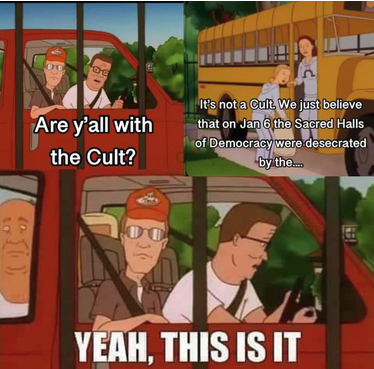World War Two
Published 9 Jul 2022Over the last few weeks entire cities-worth of troops along with all the logistical support needed to support them have gathered in and around the Kursk salient. Here’s how they’ve been deployed, and where they could go from here.
(more…)
July 11, 2022
Troop Deployments for the Battle of Kursk – WW2 Special
Canadians deserve better than “core network maintenance problems” for critical cell phone and internet services
Our internet service provider, Rogers, suffered a major network failure early on Friday morning, taking down not just wired internet services, but also cable TV, and cell phone services and causing knock-on issues that utterly disrupted many emergency 911 services, government websites, banks (including ATM and point-of-sale terminals) and many more. I subscribe to both Rogers internet and Rogers cell phone services, but fortunately my wife has a different wireless phone provider so we weren’t completely offline all of Friday and most of Saturday. Michael Geist and his family weren’t as lucky:
Like many Canadians, I spent most of the massive Rogers outage completely offline. With the benefit of hindsight, my family made a big mistake by relying on a single provider for everything: broadband, home phone, cable, and wireless services on a family plan. When everything went down, everything really went down. No dial tone, no channels, no connectivity. Work was challenging and contact with the kids shut off. It was disorienting and a reminder of our reliance on communications networks for virtually every aspect of our daily lives.
So what comes next? We cannot let this become nothing more than a “what did you do” memory alongside some nominal credit from Rogers for the inconvenience. Canada obviously has a competition problem when it comes to communications services resulting in some of the highest wireless and broadband pricing in the developed world. Purchasing more of those services as a backup – whether an extra broadband or cellphone connection – will be unaffordable to most and only exacerbate the problem. Even distributing the services among providers likely means that consumers take a financial hit as they walk away from the benefits from a market that has incentivized bundling discounts. Consumers always pay the price in these circumstances, but there are policy solutions that could reduce the risk of catastrophic outages and our reliance on a single provider for so many essential services.
First, there is a need to better understand what happened and why. Rogers CEO says the problem lies with maintenance to the core network, which caused some routers to malfunction. But that’s just tech talk. Canadians deserve answers that explain not only how this happened, but how we find ourselves in a position where malfunctioning routers at one company cause a nationwide payment system to go down, government services to be taken offline, and emergency services to be rendered inaccessible. It is one thing for my household to make a mistake, but another for Interac to do so. That means conducting an open CRTC process into this outage alongside a Parliamentary hearing on the broader issues since this is a matter that requires both regulatory and political response. There is no need to wait: these hearings must happen this month with the goal of identifying the scope and source of the problem along with potential policies that might mitigate future harms.
Neither the CRTC nor the current government has shown much inclination to challenge the big telcos. CRTC Chair Ian Scott has reversed years of a consumer-focused Commission into one more comfortable supporting the big providers, while the government has been far more interested in sabre rattling or shaking down Internet companies than taking on big telecom. Yet as we were reminded on Friday, the linkage to the availability of essential services – payments, health care, government services – runs through the telcos, not the Internet companies.
This is the second object lesson in concentrated power in a small number of government-approved hands this year. Our first wake-up call was when the government prompted chartered Canadian banks to cut off some of their customers from all financial services even though no crimes had been committed and no charges were laid. It’s not clear how many people were affected, but arbitrarily denying people access to their bank accounts and credit cards should have rung alarm bells for many people. Now, we’ve been shown how dangerous it can be to allow a very small number of companies to divide the mobile phone and internet service market between them and use the power of government to keep out potential competitors. Will enough Canadians notice?
The Master Race of Asia? – WAH 067 – July 3 1943
World War Two
Published 8 Jul 2022
(more…)
Well, we were overdue for another “Great Awakening”, but this time it’s woke
In the Neo-Ciceronian Times, Theophilus Chilton outlines why it’s more sensible to regard today’s progressives as devout cultists rather than persuaded political activists:
You may not have been aware of it, but a religious revival has been sweeping America for the past few years. However, rather than the old-time religion of Christian piety, it’s a new religion with new idols and a new direction. Yet, not entirely new — it’s the latest phase in an evolving revolutionary belief system that has consciously set itself against every aspect of traditional American culture and society. Whereas earlier progressivism made an effort to appear to integrate itself into earlier American paradigms even as it was acting to overturn them, the current religion of Woke Progressivism has completely excised itself from any pretension of respect for previous Americanism.
Some on the Right balk at the terminology of referring to woke progressivism as a “religion”. After all, hasn’t the modern Left been characterised by a rejection of religion? By an increasingly overt atheism that not only denies traditional religion, but actively subverts and mocks? Yet, unlike European modes of leftism that have remained more within the boundaries of orthodox Marxism-Leninism, official atheism has never been able to gain more than a toehold in the United States. The American temperament is a religious one and therefore requires some object of piety towards which it is directed.
For the Left, this new object of piety was channeled into cultural Marxism, a form of New Leftism that has successfully managed to take over nearly every institution — government, corporate, cultural — in this country. It did so by providing a more comprehensive program, one that was as much cultural subversion and replacement as it was “traditional” economic leftism, than older forms of socialism. This new leftism, which in its full floruit is the woke progressivism we see today, provides a totalising replacement ideology that seeks to sweep away everything that came before it.
But is this new belief system a religion? I believe that it definitely can be thought of as one, since it displays all the typical sociological patterns found in religions as they have been found throughout history, plus a few that are typical of cult groups as they’re observed today.
To begin, woke progressivism has a precisely defined and systematically enforced body of doctrines which are to be believed, not rationalised. The fluidity of gender, the naturalness of homosexuality, the evil of whiteness — all of these and much more are to be received by simple faith. But these aren’t randomly chosen. They have overarching doctrinal bases that fit within the larger progressive ideological agenda. Put together, these constitute an interlocking body of progressive doctrine that provides a comprehensive ideology to its followers.
Yet at the same time, woke progressivism does have a means of receiving new revelation and new interpretation via its own body of canonical authorities who then pass on this doctrine to the larger body of the woke “church”. This is done primarily through means of the narrative-shaping performed by major media outlets working in conjunction with elements within government, NGOs, and academia (the complex of which is what neoreactionaries often refer to as “the Cathedral”). Indeed, that process has been at work for decades — e.g. it is how the Afrocentrism of the 1980s went from being an odd, laughable academic quirk to being received doctrine which naysaying can cause you to lose your job. Have you ever noticed how when some new element of the progressive narrative hits, whether it’s a fundamental element of ideology or simply how to think about some current news event, that progressives seem to adopt it all at once?
There’s a reason for that. Once a change or addition is decided, the doctrine is swiftly promulgated to all of the local parishes and becomes a received and accepted part of the faith.
British Transport Films: Elizabethan Express (1954)
mikeknell
Published 6 May 2014This 1954 documentary is uploaded in a couple of places, but here it is without breaks and in the correct aspect ratio. One of the classic railway films.
QotD: The sad plight of the academic
There are lots of explanations for why college folk are the way they are. I’ve offered several of them myself. But when it comes right down to it, all the various explanations are just symptoms of the same fundamental disease: They’re boring, and they know they’re boring.
Boredom is, in fact, the modern West’s signature pathology. Nobody with a rich, full life — a rewarding job, some hobbies, family and friends — bothers about “intersectionality” and whatnot. That’s not to say that Normals don’t get bored. However, for us boredom is a temporary feature of life. We know how to handle it; we have a zillion ways of killing time. What’s more important, we know that boredom’s just a part of life; it happens to the best of us.
For them, each episode of boredom is an existential crisis. They’ve convinced themselves that they have all the answers, that to be #Woke is to be a god among men. So if their lives aren’t 100% wonderful and fulfilling all the time — every second of every minute of every hour of every day — it throws the fundamental premise of their entire existence into question. It it any wonder, then, why they’re constantly hyperventilating about everything? Without a constant infusion of drama, they have to face the fact that they’re just people, buggering through life with the rest of us.
Severian, “The Reluctant Revolutionary”, Rotten Chestnuts, 2019-04-05.






